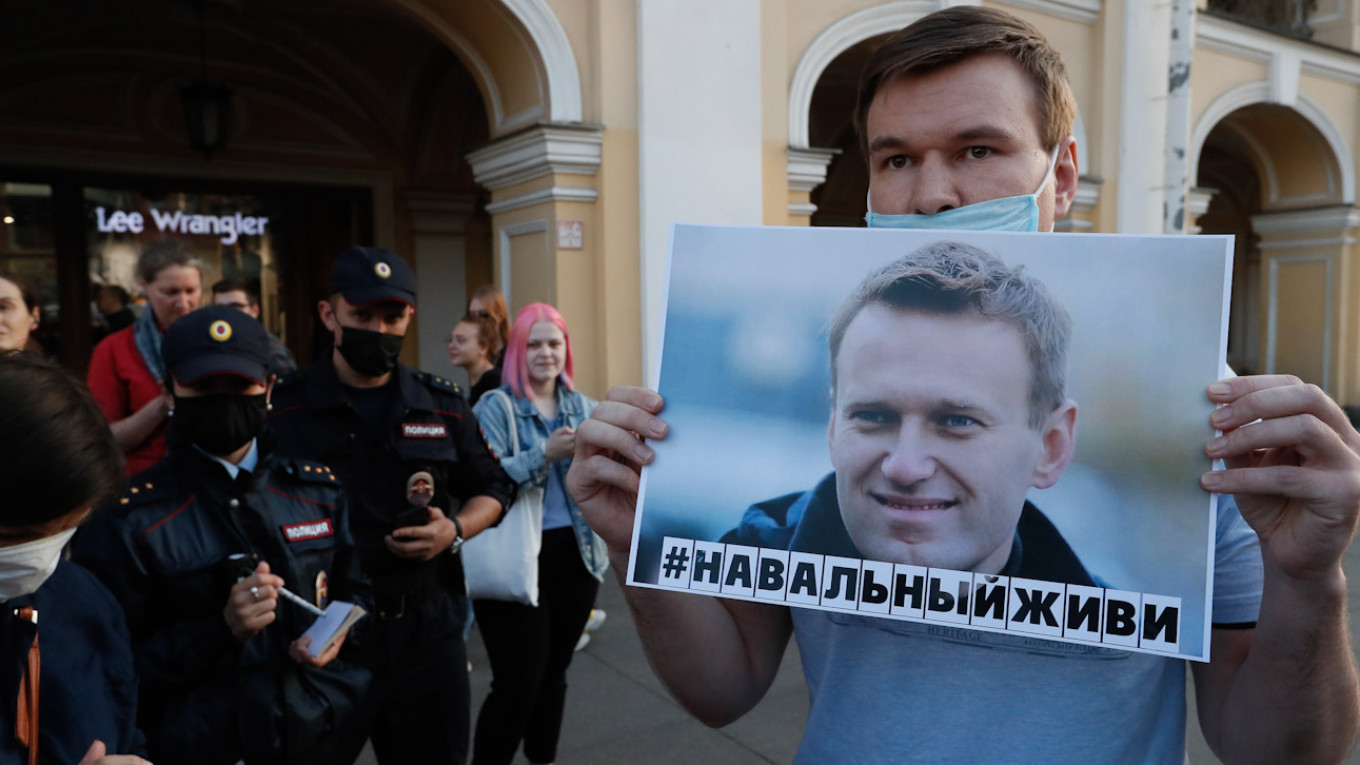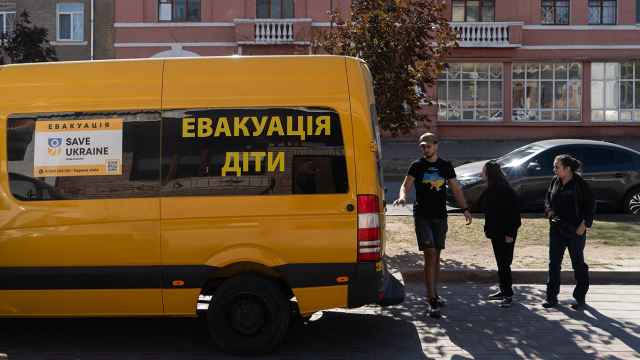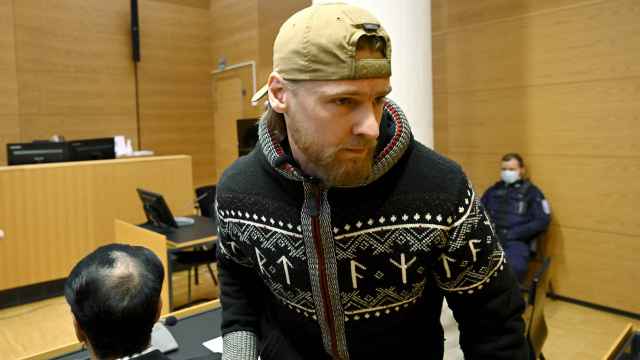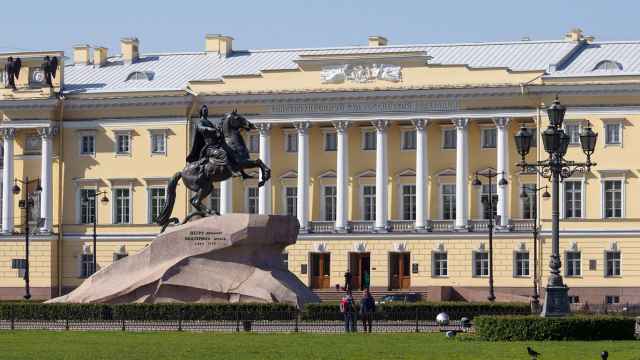A day after Alexei Navalny was hospitalized in an apparent poisoning attempt, doctors are barring his evacuation to Germany citing his unstable condition, while confusion surrounds the presence of poison in the prominent Russian opposition leader’s system.
Navalny, 44, lost consciousness an hour into a flight from the Siberian city of Tomsk to Moscow on Thursday. After his plane made an emergency landing in the Siberian city of Omsk, he was transported to a hospital, where the deputy doctor told journalists the hospital was “working on saving his life.” He said that the opposition leader was connected to a ventilator and in critical condition.
Navalny’s team has pushed for the Kremlin critic to be transferred to a leading European toxicology center, citing a lack of necessary equipment at the regional hospital and a worry that Russian doctors will be pressured by the authorities to withhold details of the cause of his illness.
An air ambulance departed from Germany early Friday morning to collect Navalny, but the regional hospital’s head doctor said his condition was unstable and he could not be transferred, according to the Kremlin critic’s spokeswoman Kira Yarmysh.
The head of Navalny’s Anti-Corruption Foundation Ivan Zhdanov, who was also at the scene, told journalists that police reported that a “poison” was found in Navalny’s system that is “dangerous to those around him,” but that law enforcement wouldn't name the substance.
Later on Friday morning, the hospital's deputy chief doctor contradicted this statement, saying that "no trace" of poison had been found in Navalny's system during tests so far.
“Until now doctors had said that they are ready to authorize transportation. That is why we organized it in the shortest possible time,” Yarmysh wrote on Twitter. “Now, at the last moment, doctors are not giving permission. This decision, of course, was not made by them but by the Kremlin.”
In a separate tweet Yarmysh called the move to bar Navalny from being transported an “attempt on his life.”
The plane that departed from Nuremberg to pick up Navalny was organized by the Cinema for Peace foundation. The German NGO had previously airlifted Pussy Riot activist Pyotr Verzilov to Germany after he suffered a suspected poisoning in 2018.
“I hope that he can recover and... he can receive from us all the help and medical support needed,” Chancellor Angela Merkel said in a joint news conference with French President Emmanuel Macron.
On Thursday, the Kremlin had wished Navalny a speedy recovery and said that if he needed to leave the country for treatment, the necessary travel requests would be considered. Vladimir Putin’s spokesman Dmitry Peskov also urged people not to speculate about the cause of Navalny’s illness and to wait for test results.
Navalny was returning to the Russian capital on Thursday after touring Siberia in support of independent candidates running in local elections next month. On Wednesday, he posted a photo on Instagram from the city of Tomsk with the caption: “Crooks wont kick themselves out of the city parliament!”
A longtime critic of the Kremlin and Russia’s de facto opposition leader, Navalny has faced pressure for his activism before.
While serving a 30-day prison sentence last summer for calling on people to attend an anti-government protest, Navalny suffered an acute allergic reaction. At least one doctor said he may have been poisoned.
In 2017, a pro-Kremlin activist threw a chemical dye at him that left him partially blind in one eye.
That year Navalny had triggered some of the largest anti-government protests in years after his Anti-Corruption Foundation published an investigation into corruption by then Prime Minister Dmitry Medvedev. On Thursday, the local Taiga.info news website reported that Navalny may have been in Tomsk to work on an investigation into local deputies representing the ruling United Russia party.
There is a history of Kremlin critics having been poisoned.
In 2006, former Russian spy turned critic of President Vladimir Putin Alexander Litvinenko was poisoned by tea laced with a radioactive isotope while in exile in the U.K.
In 2018, the U.K. accused Russian military intelligence of poisoning former Russian spy Sergei Skripal with Novichok, a military grade nerve agent.
That same year, Verzilov was rushed to a Moscow hospital after suddenly losing his sight, hearing and mobility. After he was airlifted to Germany, doctors at a hospital in Berlin said his symptoms were strongly indicative of poisoning.
A Message from The Moscow Times:
Dear readers,
We are facing unprecedented challenges. Russia's Prosecutor General's Office has designated The Moscow Times as an "undesirable" organization, criminalizing our work and putting our staff at risk of prosecution. This follows our earlier unjust labeling as a "foreign agent."
These actions are direct attempts to silence independent journalism in Russia. The authorities claim our work "discredits the decisions of the Russian leadership." We see things differently: we strive to provide accurate, unbiased reporting on Russia.
We, the journalists of The Moscow Times, refuse to be silenced. But to continue our work, we need your help.
Your support, no matter how small, makes a world of difference. If you can, please support us monthly starting from just $2. It's quick to set up, and every contribution makes a significant impact.
By supporting The Moscow Times, you're defending open, independent journalism in the face of repression. Thank you for standing with us.
Remind me later.







